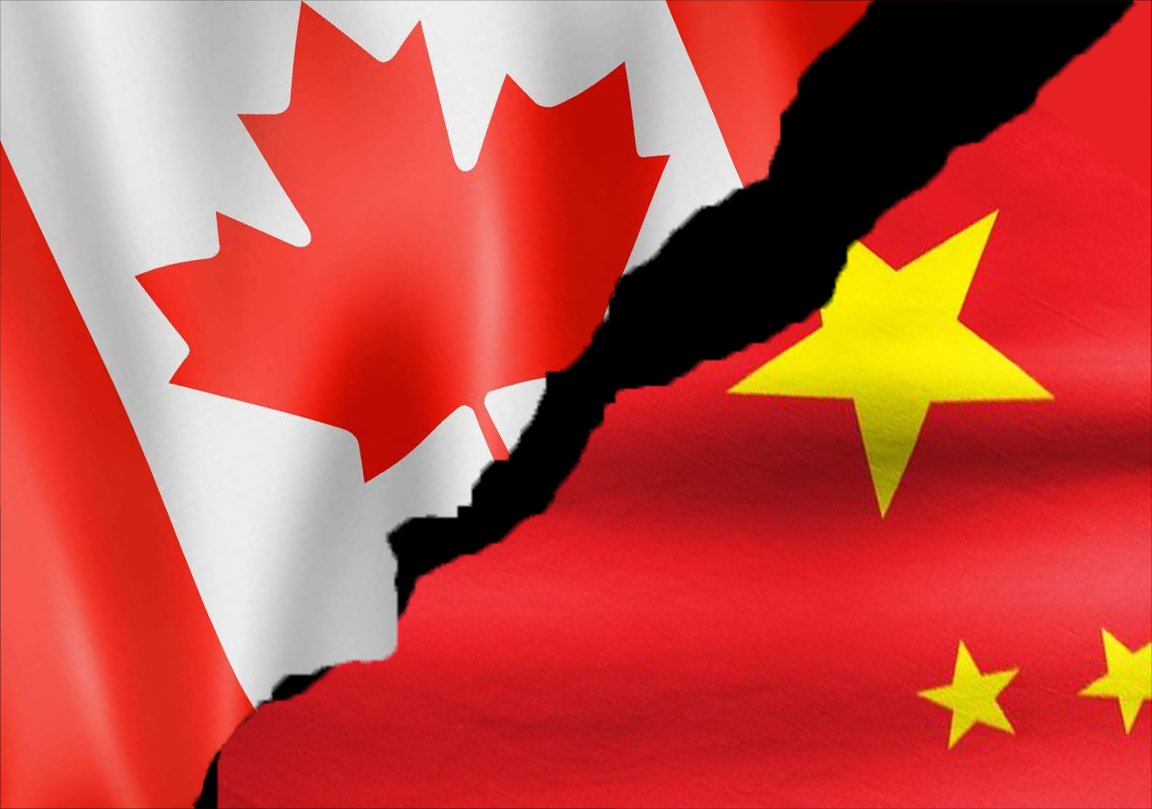
In recent days, Canada’s Parliament voted 266-0 to define China’s treatment of Uighurs, an ethnic minority in China, as a “genocide.” Prime Minister Justin Trudeau himself rejects the label, although he agrees with every charge behind it. Most Liberal MPs voted in favour.
The mostly symbolic vote is just the latest in the U.S.-led campaign to isolate China—a campaign for which Trudeau’s Liberals have played no small part.
Canada’s political elite defend their efforts as necessary to safeguard human rights in China and to uphold the rule of law. In truth, their actions betray a plan stained with hypocrisy and fuelled by economic interest.
‘Evil regime’
Canada’s attempt to demonize China is hardly new. In recent years, growing numbers of Canada’s military leaders, state security officials, politicians and journalists have used their platforms to warn of China’s rise—egged on by their counterparts in the U.S.
Their reasons are manifold. CSE, a Canadian spy agency, accuses China of being a leading cybersecurity threat, as well as having infiltrated Canadian universities. Jonathan Vance, a former top general, called for a “grand strategy” to combat Chinese territorial expansion. Journalists turn out regular editorials deriding the Chinese Communist Party (CCP) as an “evil regime.”
Trudeau’s Liberals have also joined the chorus. Official statements decry China’s human rights violations and its “coercive diplomacy.”
Ottawa has also added political muscle. In 2018, Trudeau proudly defended Canada’s detention of Meng Wanzhou, Huawei’s CFO, at the behest of the U.S. government—a position he holds to this day. In February, Canada unveiled a 58-country declaration against arbitrary detention, a document meant to embarrass China.
These measures may just well be the start, should the U.S. and Canada’s military-security establishment have its way.
Imperialist hypocrisy
Ottawa argues such measures are necessary to protect both human rights and the rule of law in China. But should they be trusted to defend them?
Start with human rights. Journalists have alleged that Uighurs in China are subjected to sterilization, imprisonment in “re-education” camps, and forced assimilation into China’s Han majority—a view now held by Canada’s Parliament. However, these conditions could just as easily describe Canada’s residential schools—a brutal system of abuse and forced assimilation of its Indigenous population that ended only in 1996. Canada has arguably done more to inspire China’s system than it has to dismantle it.
Ottawa’s tolerance of human rights abuses are not just limited to the past. Canada continues to provide arms to Saudi Arabia, despite the latter’s horrid record on issues like women’s rights. Trudeau maintained cordial relations with Aung San Suu Kyi, Myanmar’s deposed leader, despite a well documented, state-sanctioned genocide against Rohingya Muslims during her tenure.
Is it possible that China is so much worse than these regimes? Even then, it does not explain why Canada is one of the top five foreign investors in China’s Xinjiang region, the very location of China’s Uighur “re-education” camps.
Canada fares no better on the rule of law.
Trudeau has condemned China’s detention of Michael Spavor and Michael Kovrig, both Canadian citizens, as an act of “coercive diplomacy.” But here too, Canada acted first.
Since 2018, Meng Wenzhou has been under house arrest in Vancouver, pending extradition to the U.S. Her crime? Violating unilateral U.S. sanctions against Iran, an action that would not be considered a crime in most countries. Case in point: Meng travelled to six countries with U.S. extradition treaties before being detained in Canada.
In truth, Canada and its allies have engaged in “coercive diplomacy” of their own. In July 2018, a meeting of U.S.-allied spy agencies resolved to limit Huawei’s global growth. Meng’s detention was therefore likely premeditated—not to deliver justice, but to strike a blow at an enemy nation.
Enemy at home
Canada’s anti-China campaign has little to do with either human rights or the rule of law. What then is its purpose?
In recent years, China has developed into a major capitalist power. The United States, Canada’s main ally, has meanwhile entered into a slow period of decline. Together, these developments risk upsetting the commanding influence that U.S. imperialism has enjoyed on the global stage since 1945.
U.S. President Joe Biden has picked up where Trump left off in his quarrel with China, with one difference—Biden, a “multilateralist,” has pulled his allies into the campaign. However, the basic aims remain: to contain China’s rise and to guarantee U.S supremacy. In doing so, the U.S and its allies must overplay China’s abuses, while downplaying their own.
In the coming years, Canada’s elite will foment anxiety over China to distract from problems at home—much like it did with the Soviet Union before it. Marxists in Canada should expose their maneuvers, while also directing people’s anger towards their real enemy in Ottawa.
In doing so, Marxists must also oppose Canada’s punitive measures against China, including the detention of Meng Wanzhou. Ignoring this means amplifying the “red scare” hysteria, while sowing distrust among China’s population.
However, this does not equate to support for the CCP. China’s regime has its own list of crimes against ethnic minorities and workers. Marxists who ignore this act not in the interest of China’s oppressed, but in the interests of the capitalist CCP. The task of rectifying the CCP’s wrongs falls solely on China’s working class, to whom Marxists in Canada must lend their full support.
Canada’s anti-China posture is a hypocrisy pursued for cynical aims. Ottawa hopes to please its patrons in Washington, while directing Canadians’ fury at Beijing.
Canada’s workers should not fall for it.

